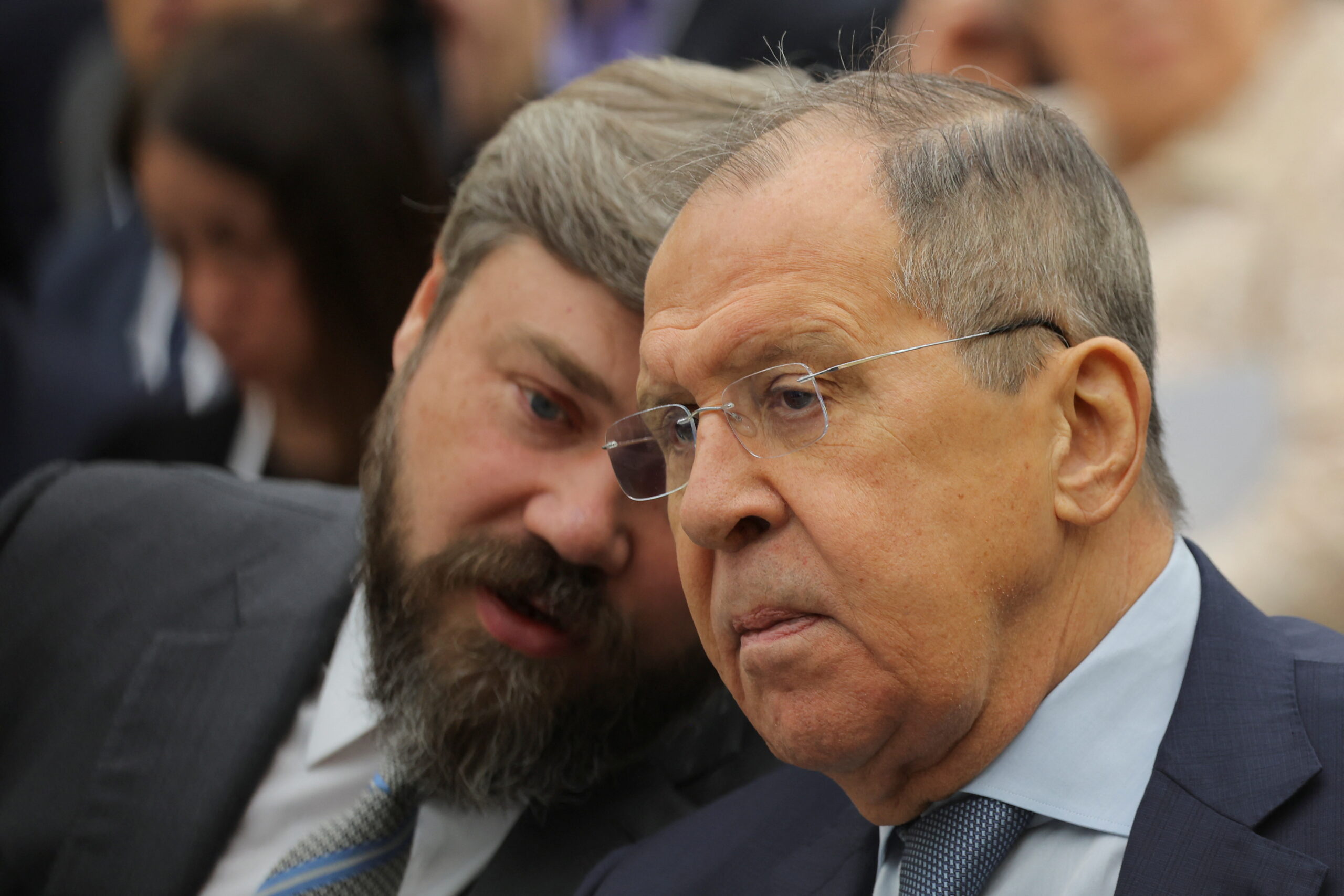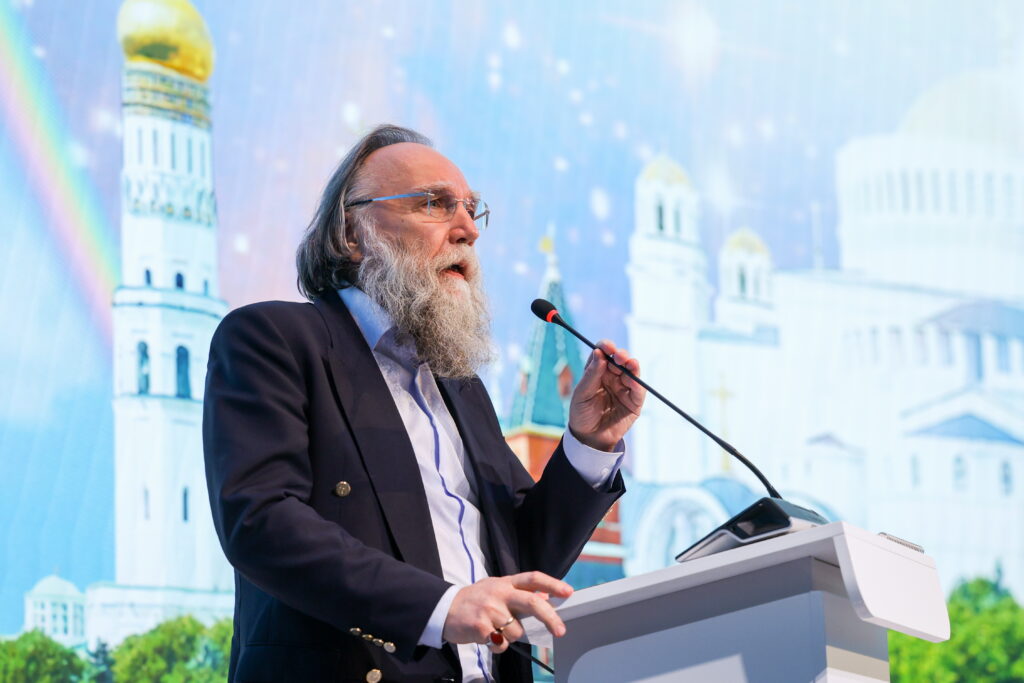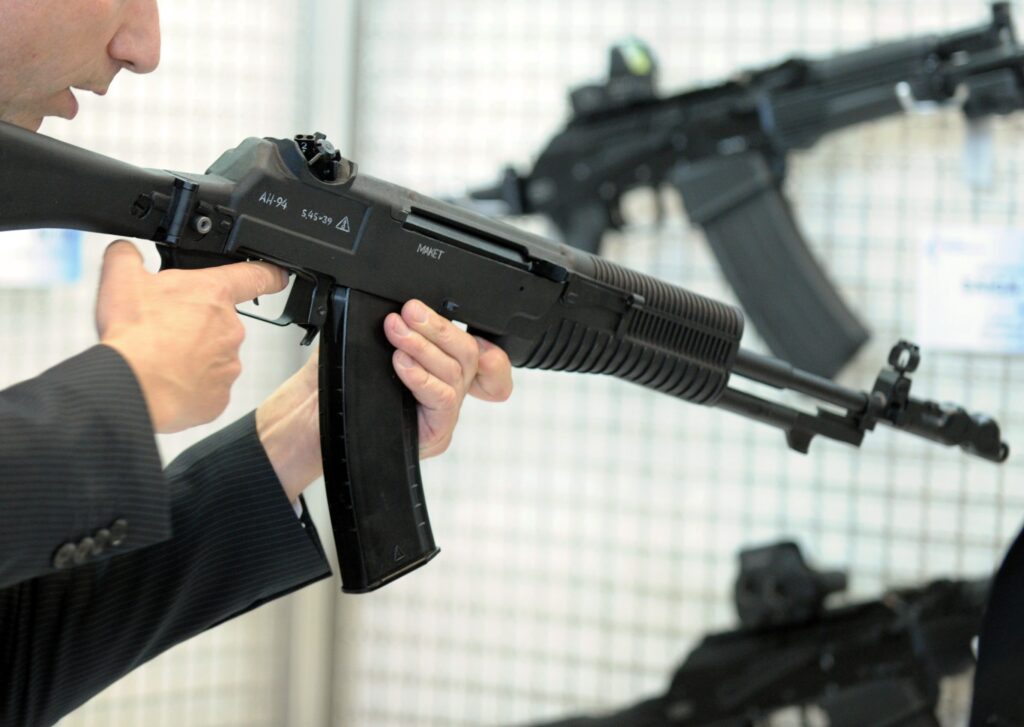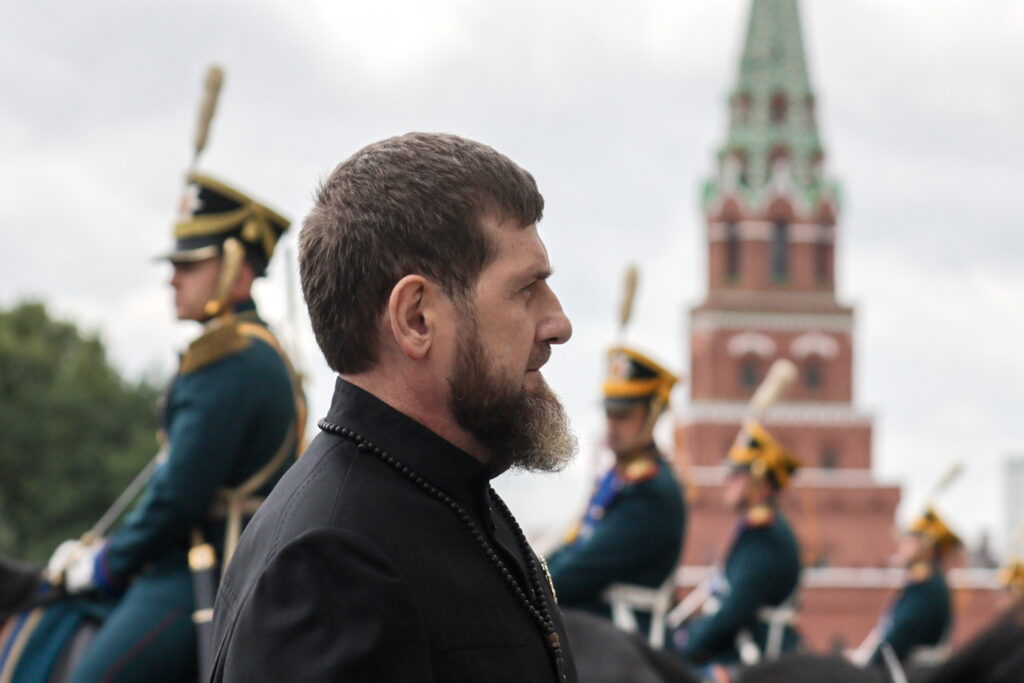«Russian Cosmos: Race to Mars,» «MAGA in Russia,» «One-Story Russia,» «Visionaries: New Leaders of Change,» «Gamification of War» — these were the topics at the «Future 2050» forum organized by Orthodox oligarch Konstantin Malofeev. The main headliner was Foreign Minister Sergey Lavrov. Errol Musk, father of Tesla founder Elon Musk, and American right-wing commentator Alex Jones attended the event in Moscow. The State Duma was represented by Deputy Speaker and United Russia member Pyotr Tolstoy, as well as Just Russia leader Sergey Mironov, while the Kremlin’s political bloc was represented by Alexey Goreslavsky, a former Kremlin official and current head of the Internet Development Institute. Notably absent from the speaker list was Malofeev’s chief ideologue, philosopher Alexander Dugin, despite the forum being organized by the Tsargrad Institute, which Dugin heads and Malofeev funds. The forum received significant coverage in pro-government media, which eagerly quoted Errol Musk praising Moscow, expressing his love for Russia, and criticizing his son for his feud with U.S. President Donald Trump. Statements by Lavrov and Malofeev also made headlines. In this sense, the Orthodox oligarch achieved his goal of reminding the country’s top leadership of his presence: major pro-Kremlin media, which are monitored for Vladimir Putin’s press briefings, covered his forum. However, Malofeev is unlikely to rise in the power vertical — this is not his first attempt to pitch his brand of patriotism to the state, but he either moves too fast or lags behind with his initiatives.
Malofeev’s Technopatriotism
Malofeev’s program and his version of patriotism, outlined at the forum, are clear, though unusual. The oligarch and his allies propose focusing on technological advancements, space exploration, fostering a pro-Trump MAGA movement on Russian soil, and transforming Russia into a country of small towns and villages. Democratic rights and freedoms have no place in this future — according to Malofeev, progress is only possible with a firm hand. The forum also featured anti-migrant rhetoric, characteristic of both Malofeev and MAGA supporters.
This version of technopatriotism and vision of the future resembles the views of U.S. President Donald Trump, Vice President J.D. Vance, and conservative tech entrepreneurs like Elon Musk and Peter Thiel. Malofeev himself fits the mold of a «bro-ligarch,» having amassed his fortune in the tech and telecom sectors.
His proposals seem tailored to appeal to the country’s top leadership. The Kremlin is currently enamored with new technologies, artificial intelligence, and robotics. Forum speakers discussed a multipolar world, aligning with the official narrative, as well as traditional values. The focus on Trumpism and MAGA also fits, for now, with Kremlin policy. Lavrov, at the forum, spoke approvingly of the current U.S. administration and praised his American counterpart, Marco Rubio. Not long ago, parts of Russia’s top leadership, likely including Putin himself, believed in Trump’s efforts to persuade Ukraine. Now, they see Trump as a dealmaker who might engage with Russia despite the ongoing war.
In line with this new fascination with the U.S., Malofeev proposes creating a «beautiful America of the future» in Russia, MAGA-style. More precisely, a one-story America of the past, infused with modern technologies, Mars missions, and AI, adjusted for Russian «traditional values.»
In line with this new fascination with the U.S., Malofeev proposes creating a «beautiful America of the future» in Russia, MAGA-style. More precisely, a one-story America of the past, infused with modern technologies, Mars missions, and AI, adjusted for Russian «traditional values.»
Internet Censor and Champion of the «Russian World»
This is not Malofeev’s first attempt to offer the authorities his model of patriotism. His political ambitions emerged in the late 2000s when he founded the Orthodox «Vasily the Great Foundation.» However, compared to other major Orthodox-linked organizations, like the Andrei Pervozvanny Foundation, Malofeev’s group was overshadowed. His «Safe Internet League,» founded in 2011, gained more attention. At the time, the internet’s growing prevalence caught the Kremlin’s interest amid fears of «color revolutions,» which the presidential administration and security services believed were orchestrated via social media. The League publicly aimed to combat pedophilia, drug trafficking, and extremism online, proposing content moderation and censorship. While not a full-fledged «ideology,» this concept of a patriotic, state-controlled internet was a clear political offer.
Malofeev managed to pique the interest of then-Communications Minister Igor Shchegolev, a former Putin press secretary, who joined the League’s supervisory board. Around the same time (2012), Malofeev sought political status by aiming for a Senate seat. Back then, senators needed a mandate from a municipal assembly in their region. Malofeev targeted a seat from Smolensk Oblast, running for a deputy position in a rural settlement. Initially, Smolensk Governor Alexey Ostrovsky, with Kremlin approval, supported him, and Malofeev officially won the rural election. However, the Kremlin’s political bloc reconsidered, viewing the wealthy and ideologically driven businessman as undesirable for the power vertical (at the time, the administration was phasing out businessmen from legislative bodies, replacing them with compliant public sector workers). The Orthodox oligarch did not become a senator, and his business attracted scrutiny from law enforcement. While Malofeev avoided prosecution, he was barred from high-level politics. The Safe Internet League never gained full state support or status as an official partner. On one hand, other players (primarily the Kremlin’s political and information blocs) also sought to control the internet; on the other, Malofeev’s proposals were deemed too radical at the time. He was both too late and too early.
In 2014, Igor Strelkov, head of security at Malofeev’s Marshall Capital, participated in the annexation of Crimea and Sevastopol and the armed seizures of Slovyansk and Donetsk. Strelkov and political strategist Alexander Borodai, a Malofeev consultant, served in the first «government» of the self-proclaimed Donetsk People’s Republic but were quickly ousted. A year later, Malofeev founded the «Double-Headed Eagle» movement and the Tsargrad-TV channel, which promoted an exotic ideology, including a return to monarchy. These were Malofeev’s personal projects, misaligned with the Kremlin’s priorities, and thus failed to gain traction — the Orthodox businessman remained a political outsider.
He made another attempt in 2019, becoming a sponsor of the struggling Just Russia party, which was losing business support, and securing the post of deputy chairman. Simultaneously, he headed the World Russian People’s Council, a Russian Orthodox Church organization that engages with secular authorities and proposes political and social initiatives. His collaboration with Just Russia faltered — party leader Sergey Mironov suspected Malofeev aimed to take full control and lead the party. The Kremlin’s political bloc also opposed his ambitions, leading Malofeev to lose his party post and membership. However, his role as a generous sponsor and organizer suited Patriarch Kirill, who was positioning himself as an ultra-conservative ideologue.
At World Russian People’s Council meetings organized by Malofeev, proposals included creating councils to protect traditional values under governors and restricting abortions. The Council promoted large families and the concept of the «Russian World,» referring to the historical space of the Russian Empire. While these ideas often aligned with Kremlin policy, they were initially more radical. As Malofeev’s line converged with the official narrative, the Kremlin’s political bloc developed its own version of patriotic policy, differing in details from Malofeev’s. This was partly because Malofeev was effectively competing with the Kremlin’s political managers for the role of chief ideologue. Eventually, his activism began to trouble Patriarch Kirill, and Malofeev lost his deputy chairmanship of the Council. He then launched a new movement, again called «Tsargrad,» with a new ideological focus: combating illegal migration. The Kremlin did not embrace this proposal, and other figures, like Investigative Committee head Alexander Bastrykin or the New People party, became the official voices on this issue.
A Salesman with Convictions
The «Future 2050» forum showed that Malofeev remains on the fringes of the Kremlin’s tightly controlled political field, despite his efforts to break through. He funds figures useful to the presidential administration: philosopher Alexander Dugin, who occasionally advises the Kremlin’s political bloc, heads the Tsargrad Institute, while Ekaterina Mizulina, a symbol of internet censorship and a pop-culture figure, leads the Safe Internet League. However, both Dugin and Mizulina are far more prominent than Malofeev himself. His continuous pitching of new versions of patriotism is part of his attempt to legitimize himself in politics. In this sense, he can be called a patriotic traveling salesman, trying to sell Putin ever-new iterations of the same product. Now, he’s offering a Russian-style MAGA. As often happens with Malofeev’s initiatives, this one is slightly mistimed — the «Future 2050» forum is already late. Until recently, the Kremlin hoped for cooperation with Trump, but negotiations are stalling, and the U.S. may soon be viewed as an enemy again.
The Kremlin’s political bloc still does not see Malofeev as a full partner, as evidenced by the forum’s participant lineup. Most foreign guests were marginal figures. Errol Musk, for instance, is known for controversial statements and is estranged from his influential son. The most prominent Russian figure was Foreign Minister Sergey Lavrov, who, at 75, is increasingly active in less serious political events, such as United Russia party commission meetings, likely preparing for a transition to public politics after his ministerial career. On this path, Lavrov will need allies. The Kremlin sent Alexey Goreslavsky, head of the Internet Development Institute, to the forum, while high-profile Kremlin events typically feature First Deputy Chief of Staff Sergey Kiriyenko or his close allies, like Alexander Kharichev or Sergey Novikov. The Russian Orthodox Church was represented not by Patriarch Kirill or a bishop but by the media-savvy yet marginal priest Andrey Tkachev. The uncertain participation of many speakers also speaks to Malofeev’s status in the system. His position is unlikely to change soon. Malofeev’s personal convictions — monarchism and a role for the Church in governance — make him a threat to the Kremlin’s ideological vacuum, as do other politicians with beliefs or ideological projects. The Kremlin’s political managers successfully isolate the Orthodox oligarch from direct contact with the president and legitimate political participation. A key indicator is that, ahead of the 2026 State Duma elections, Malofeev not only lacks control over a systemic party but is not even a member of one.










